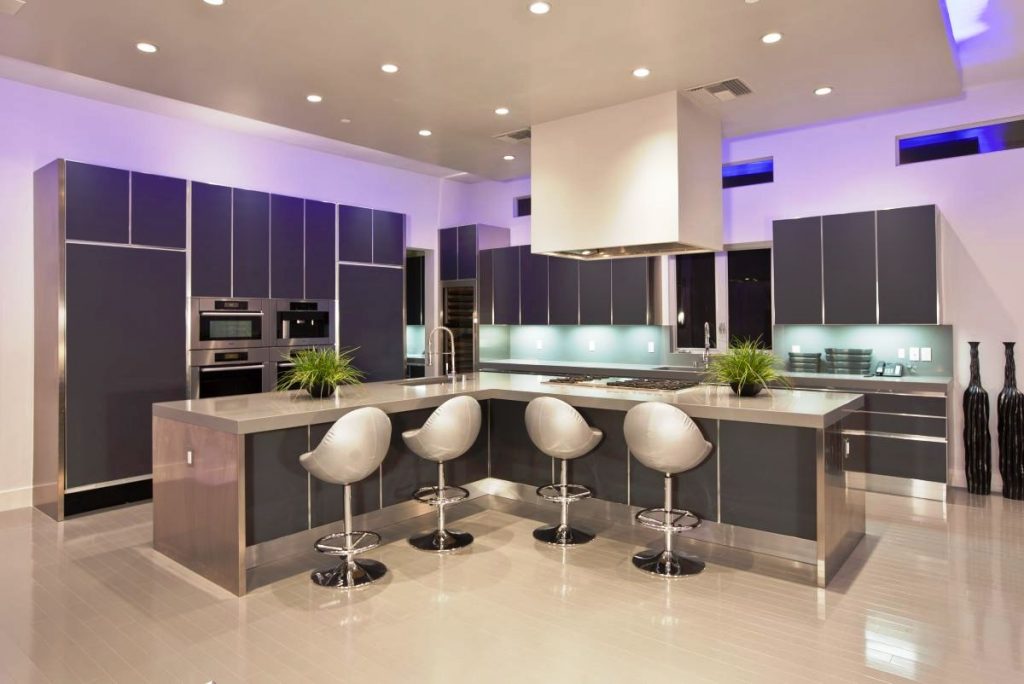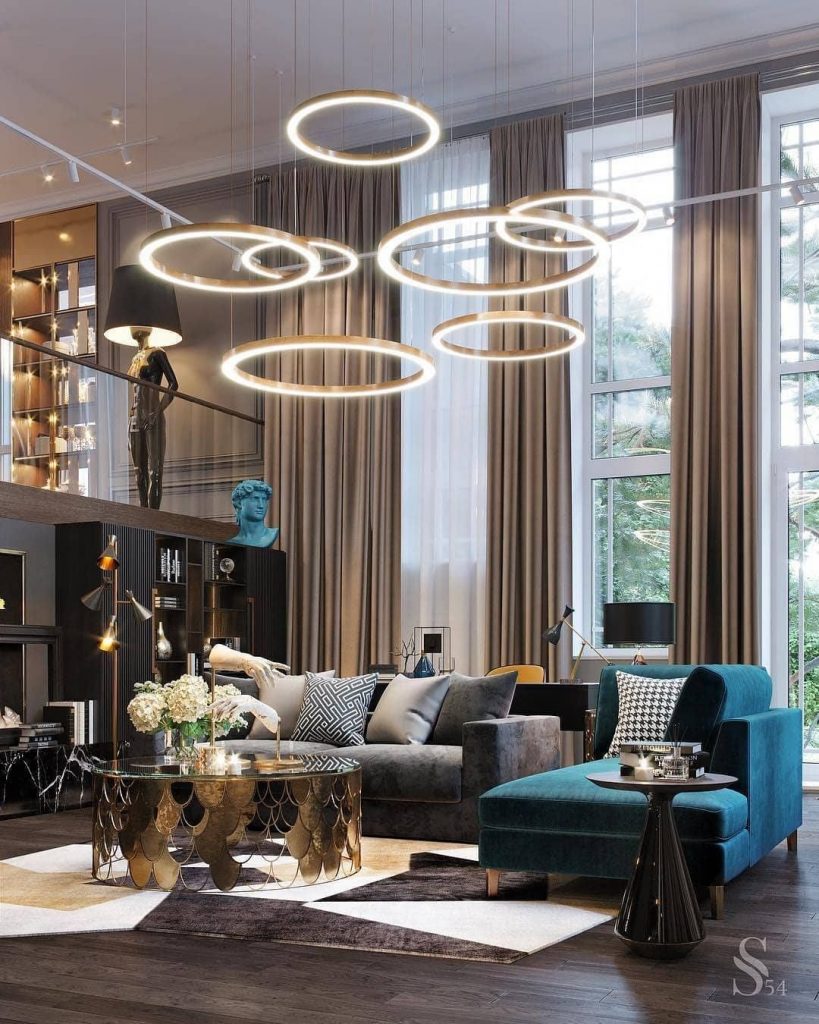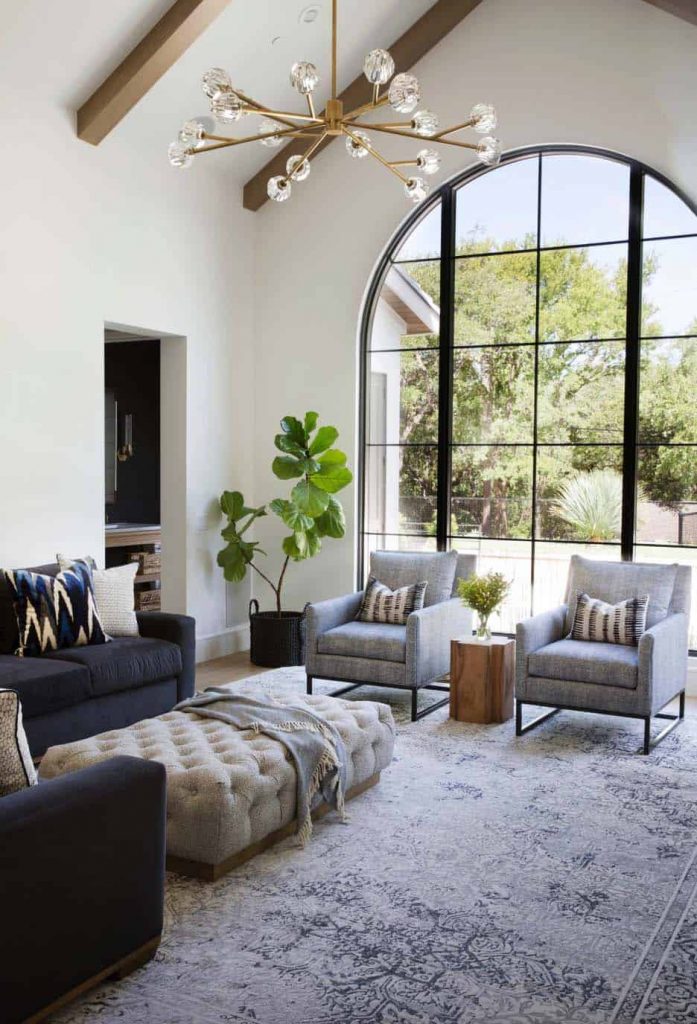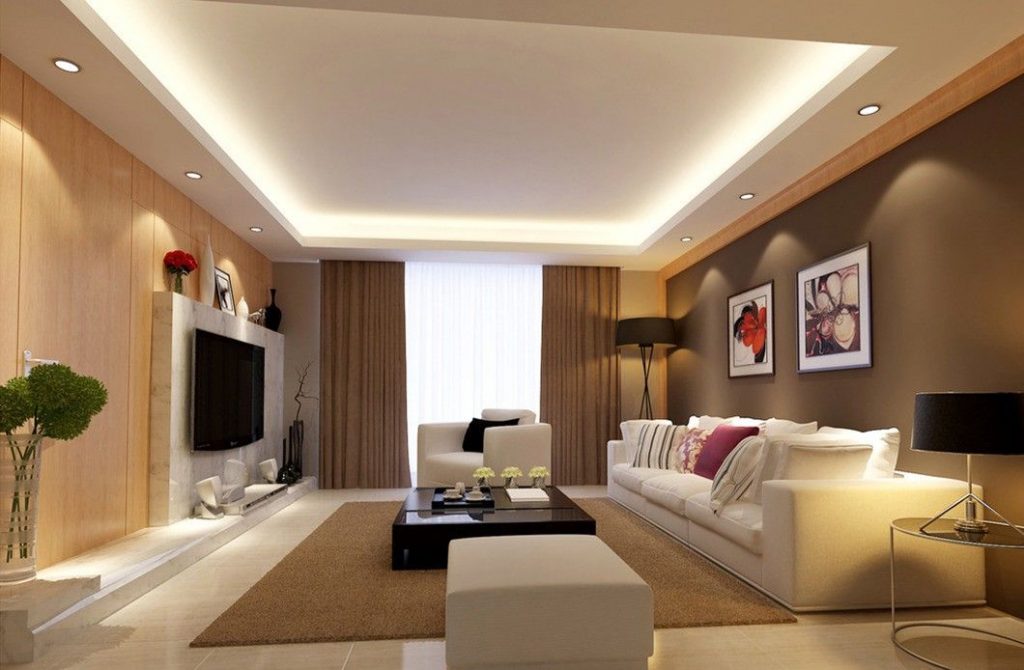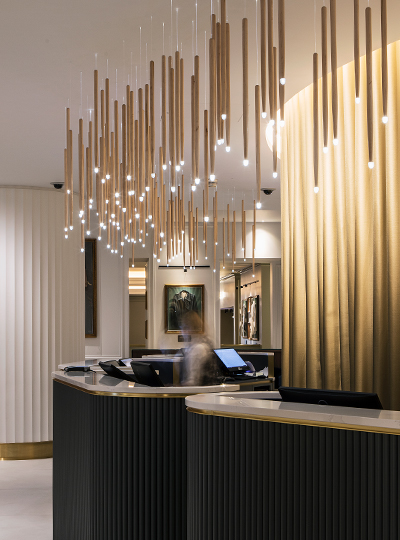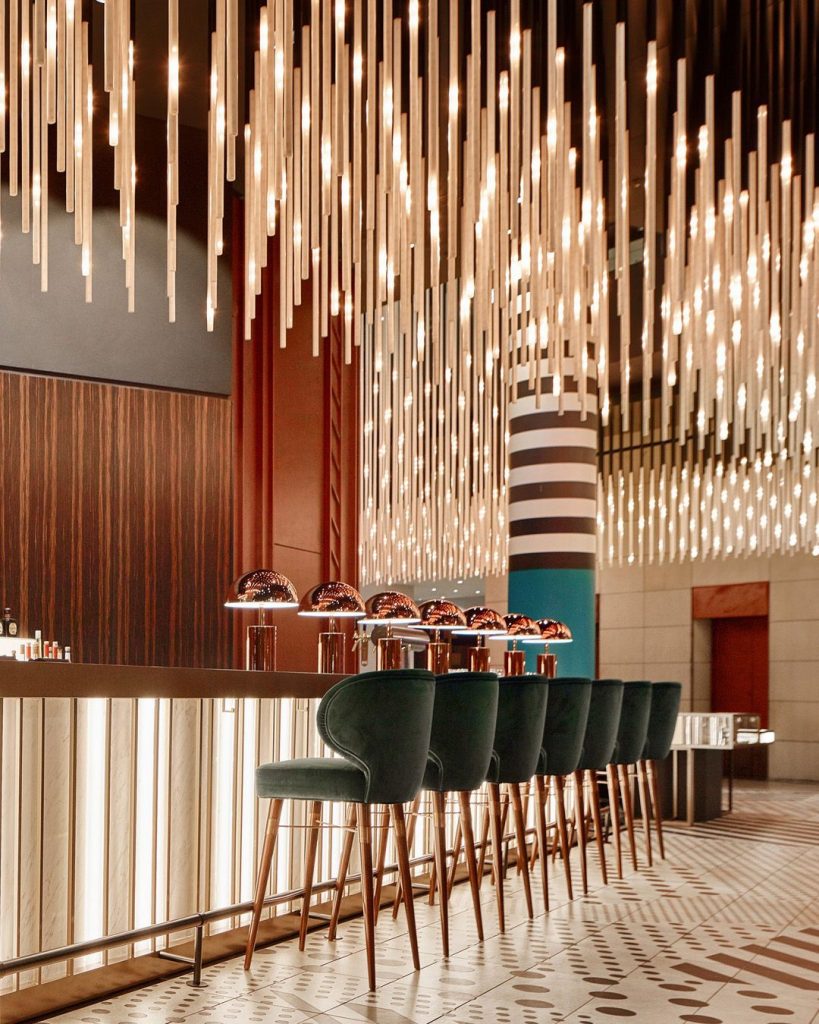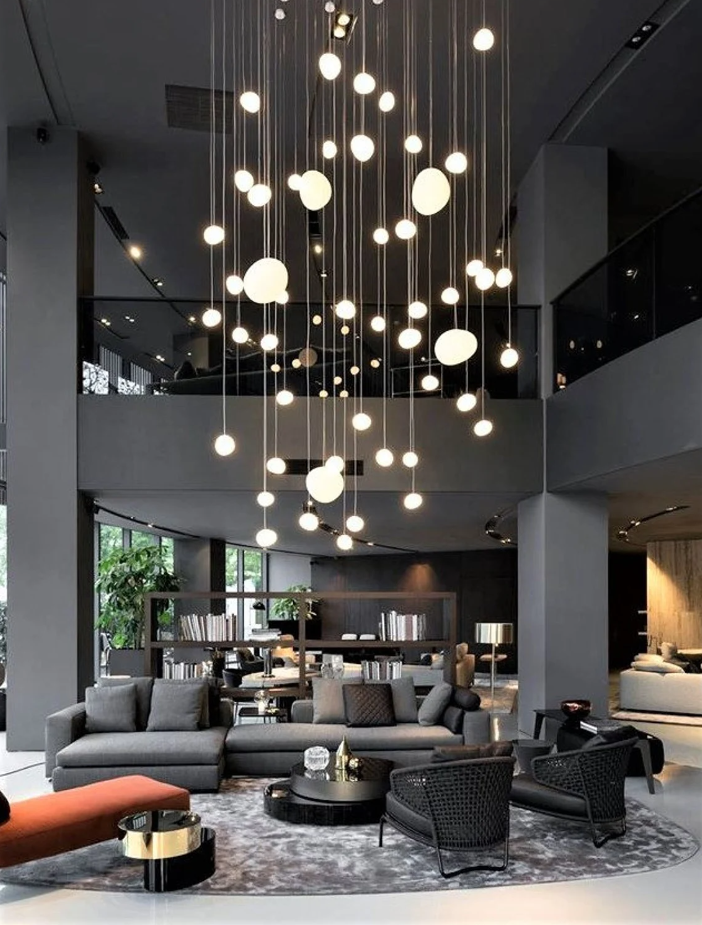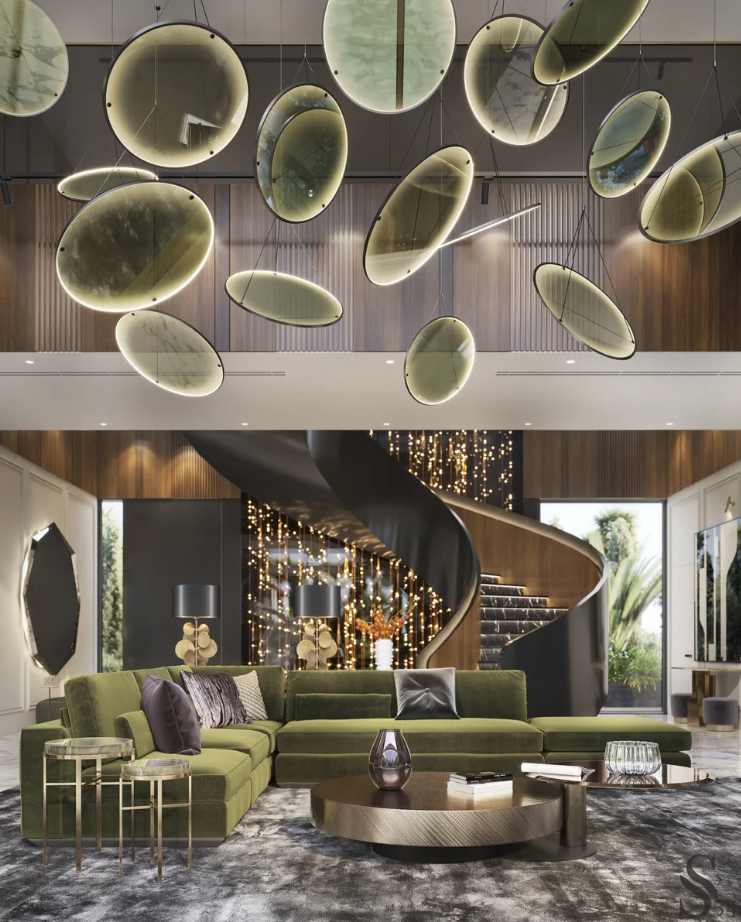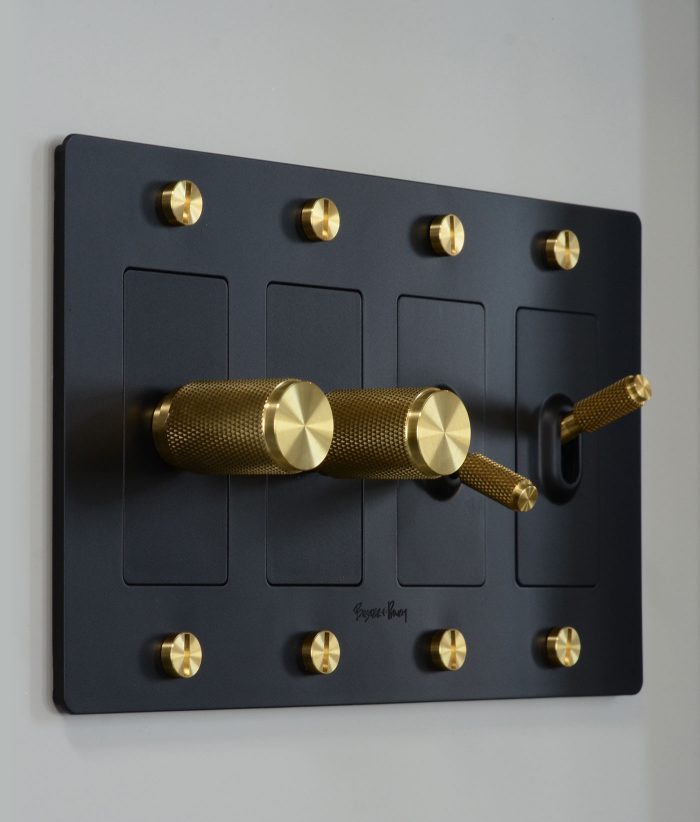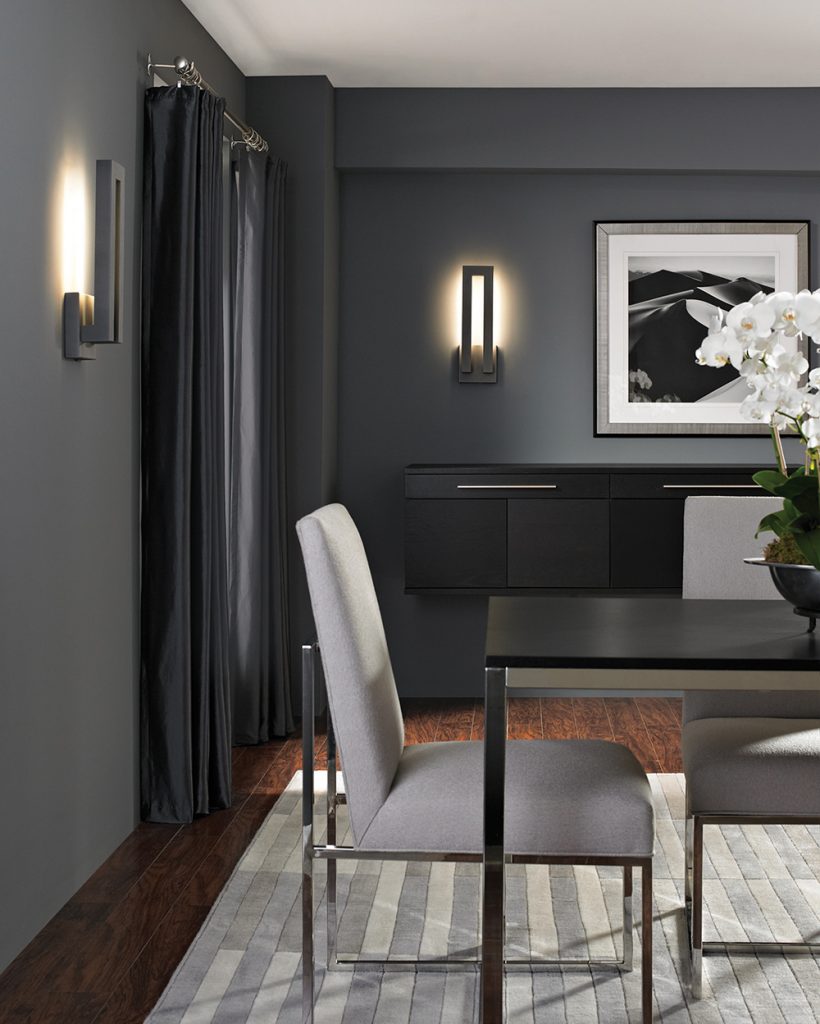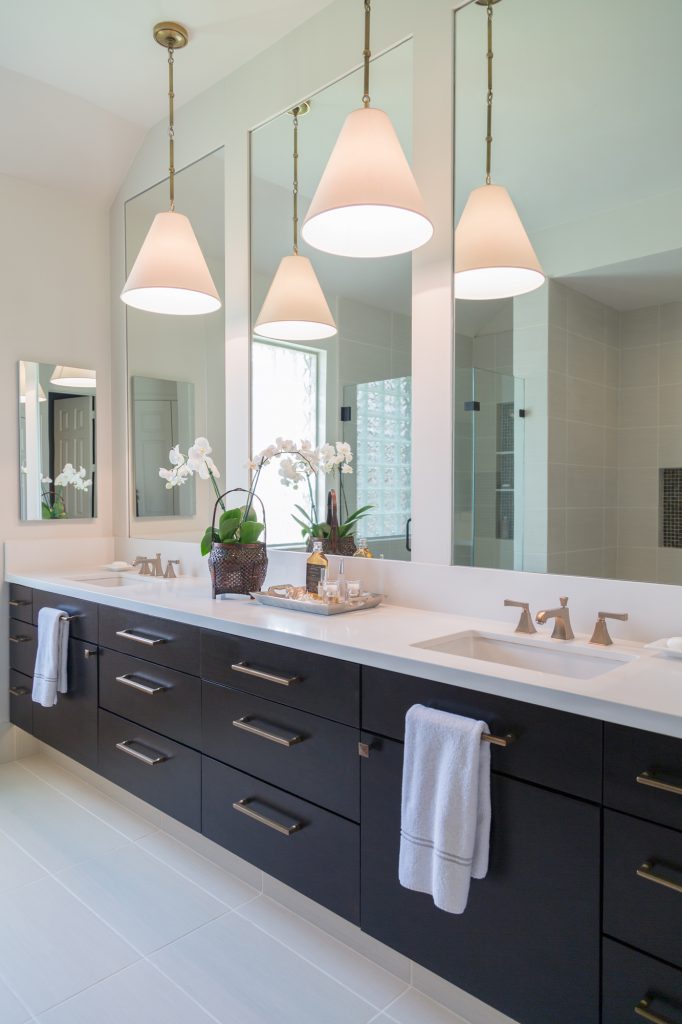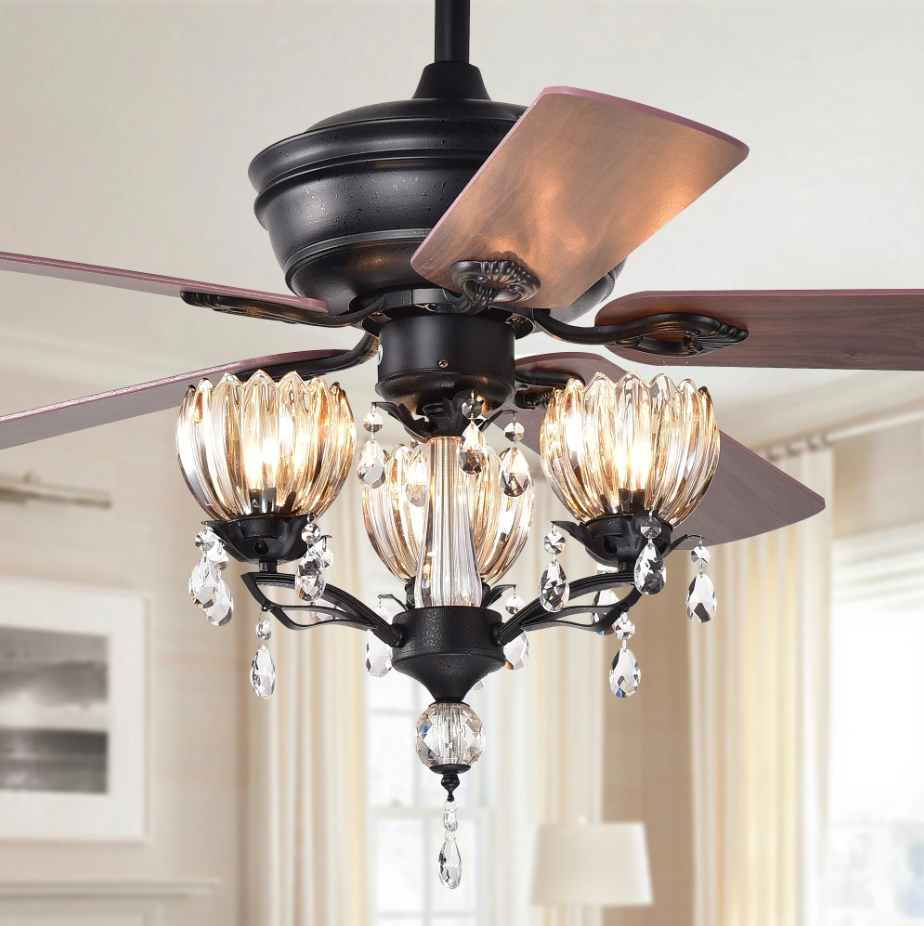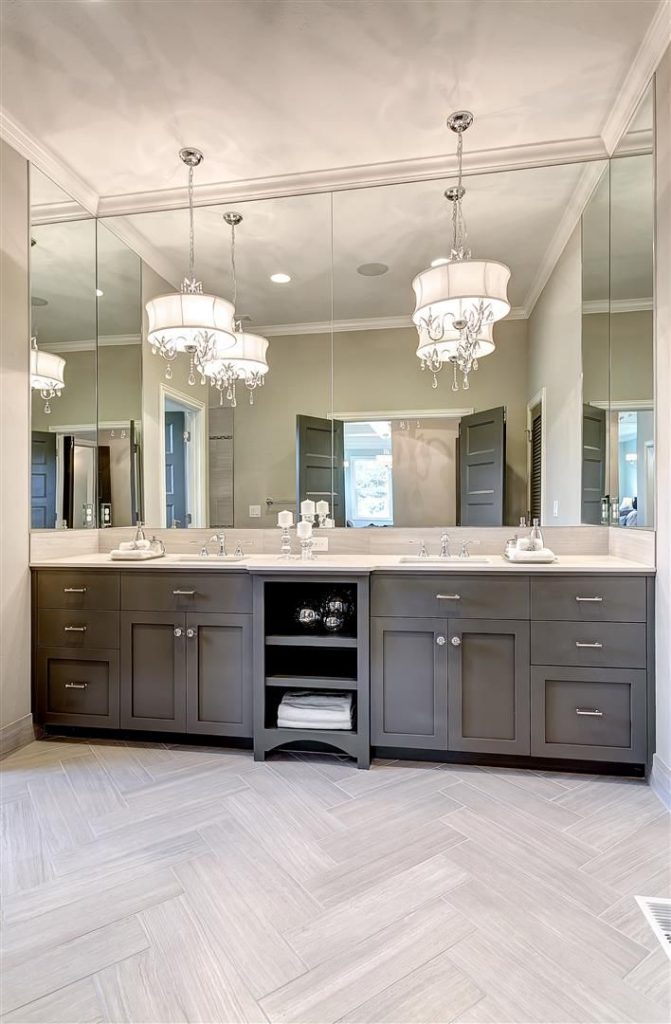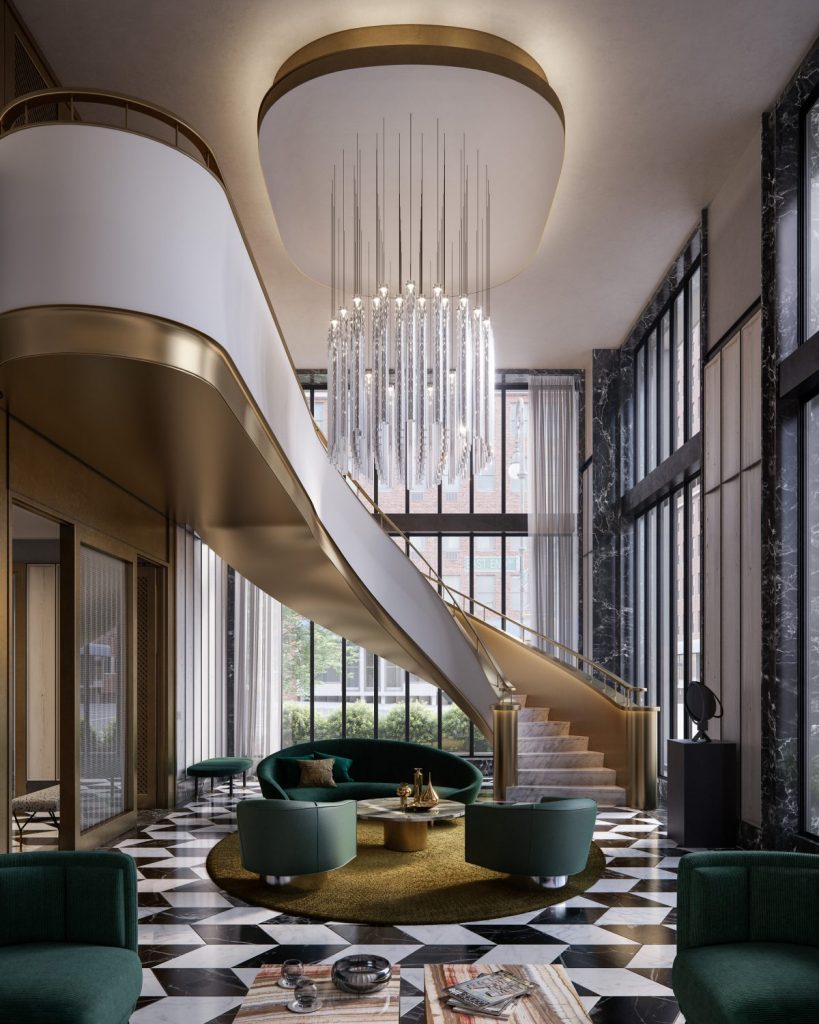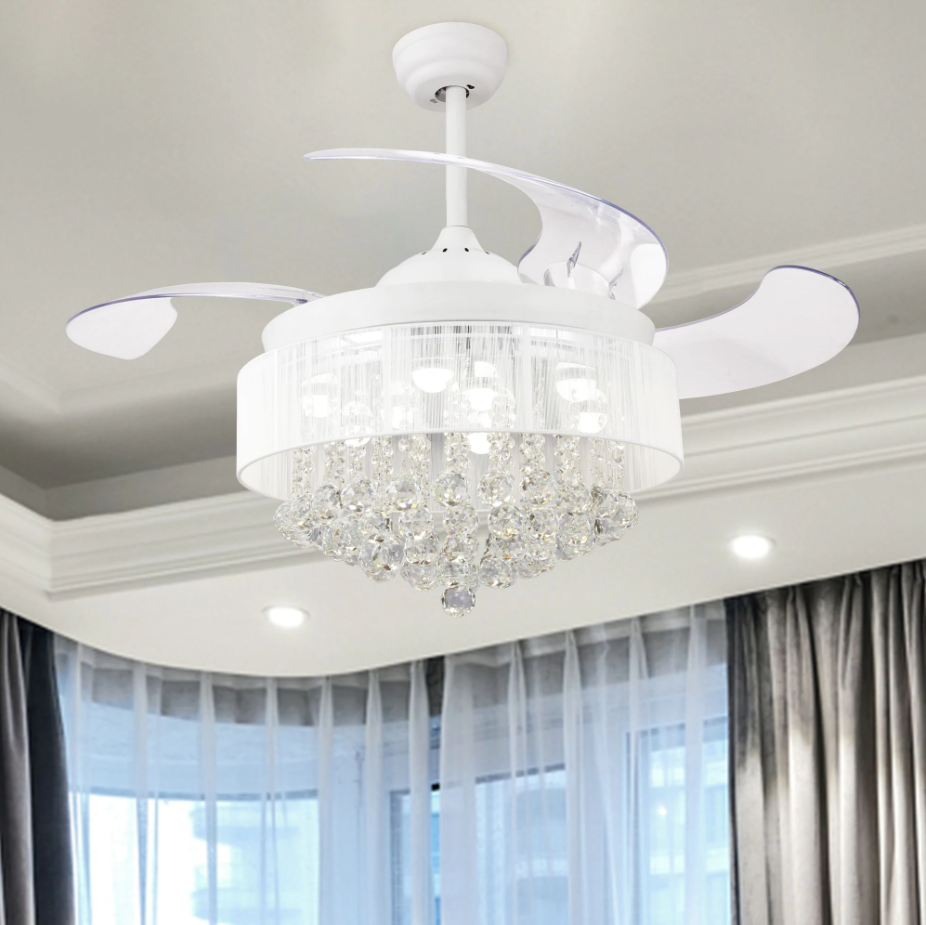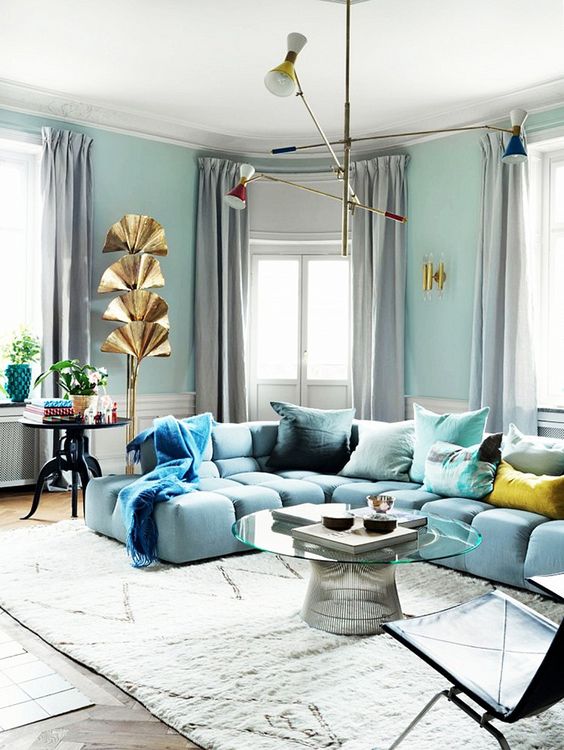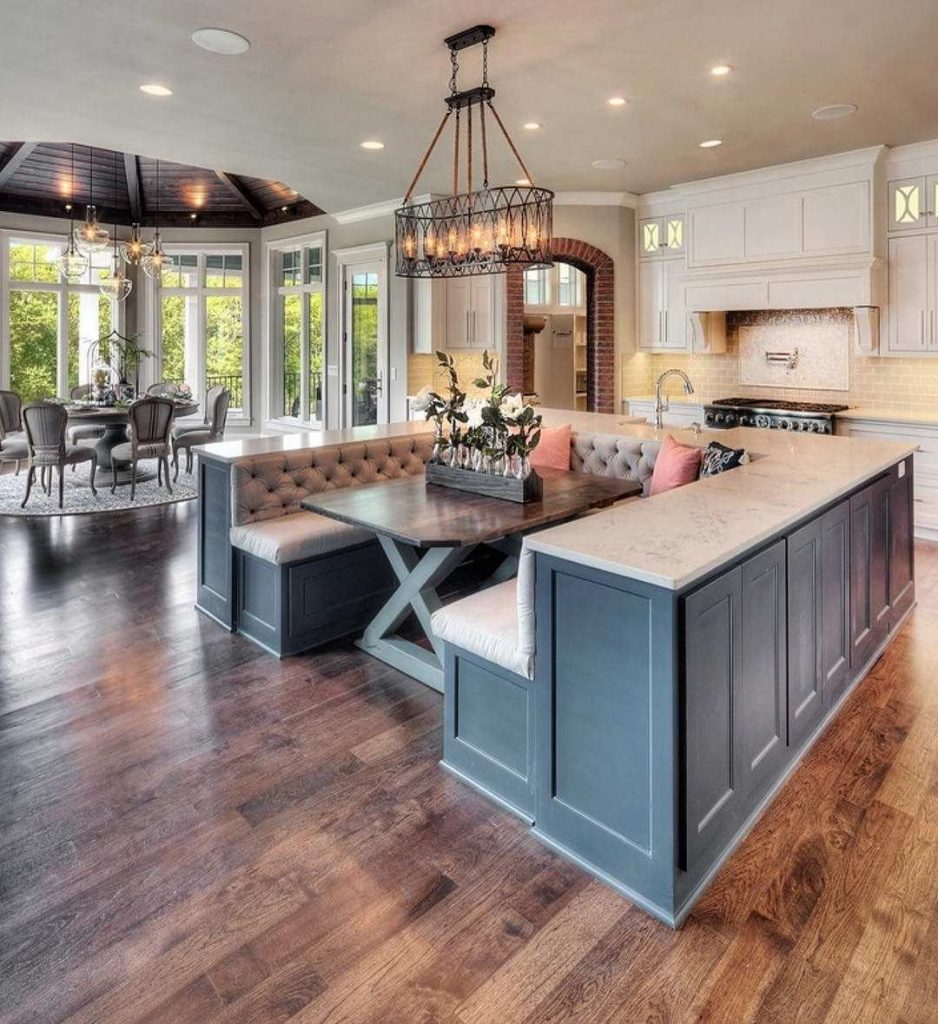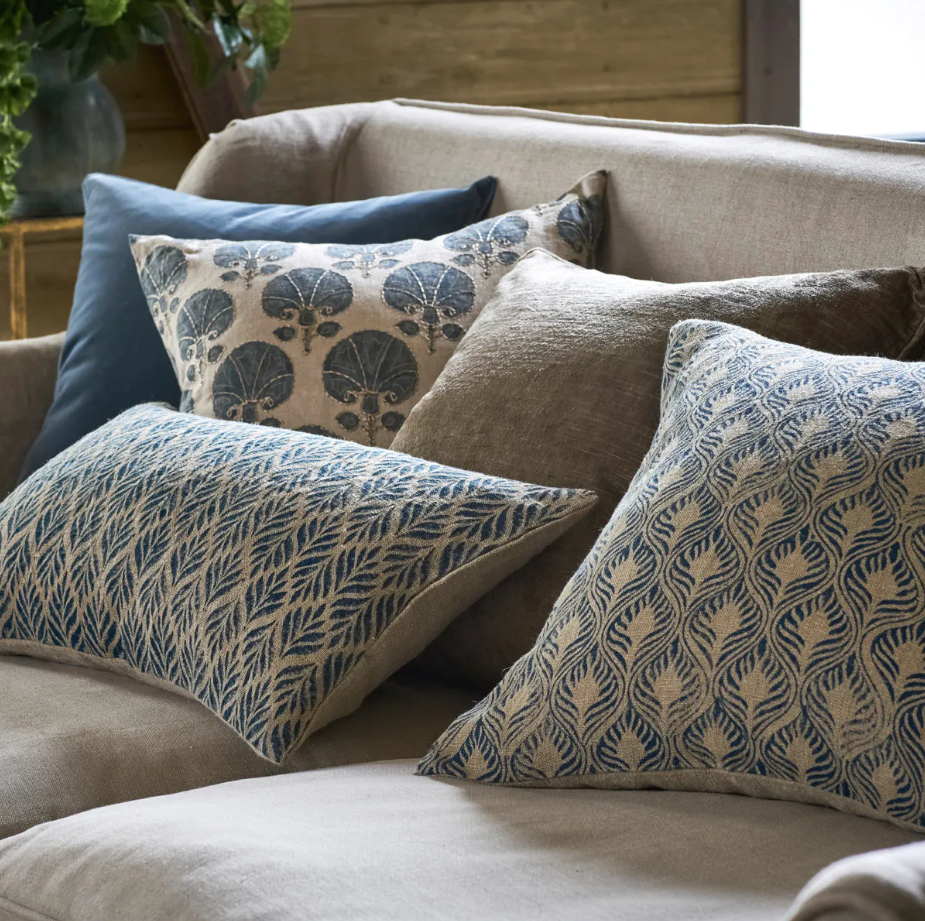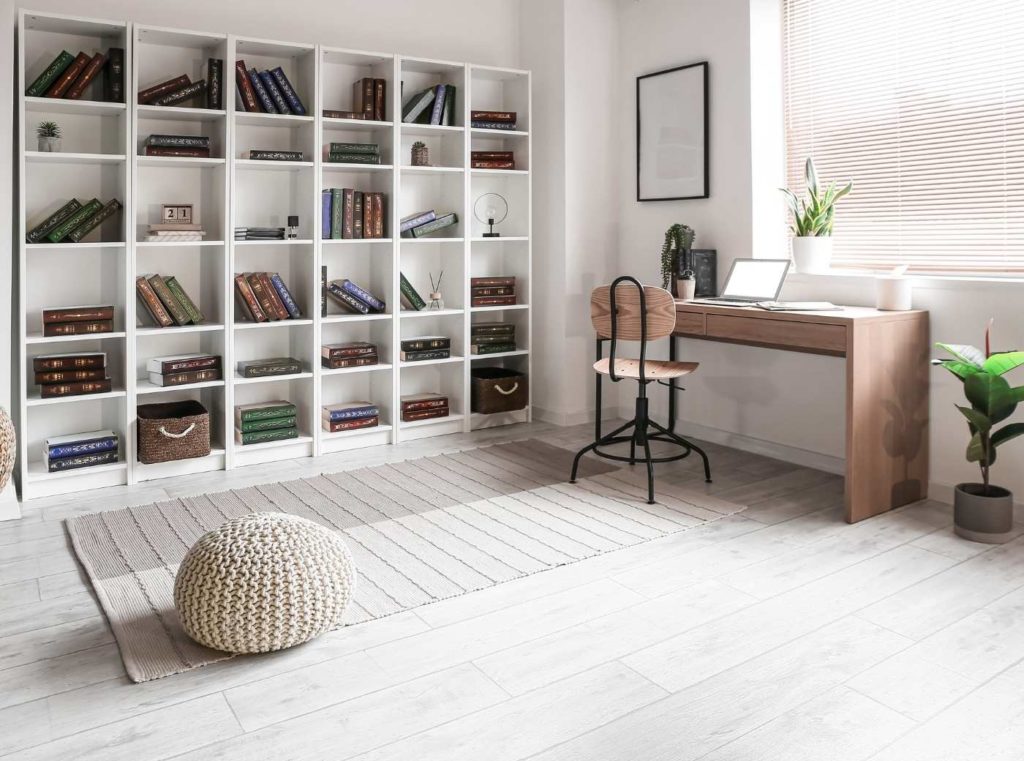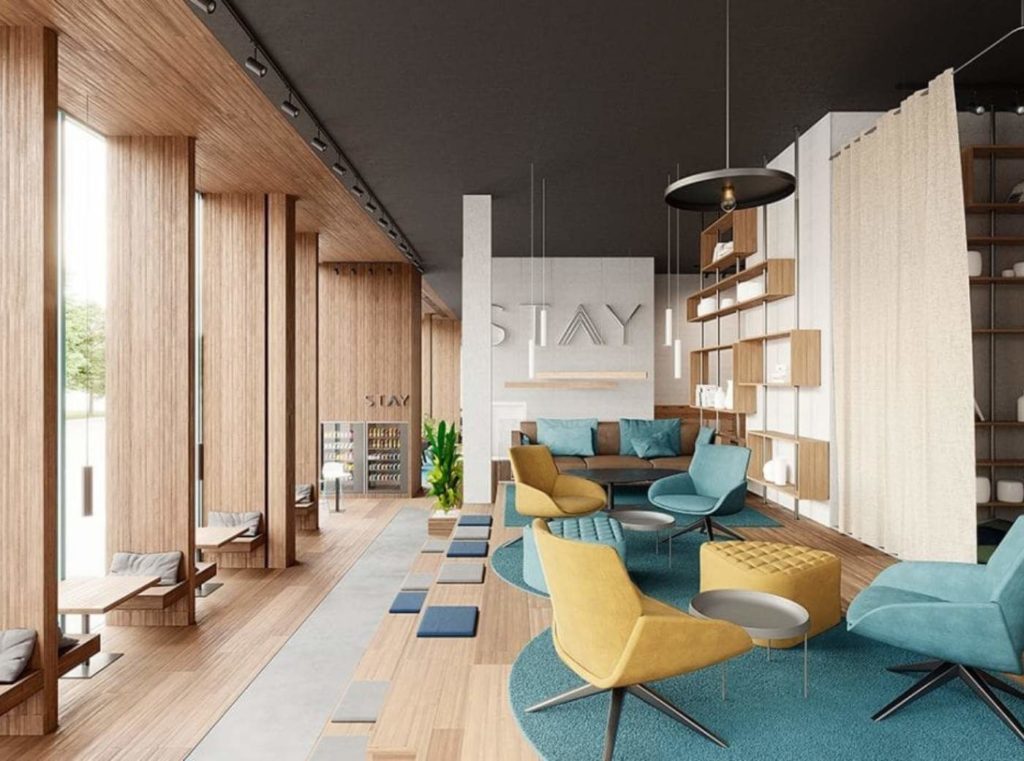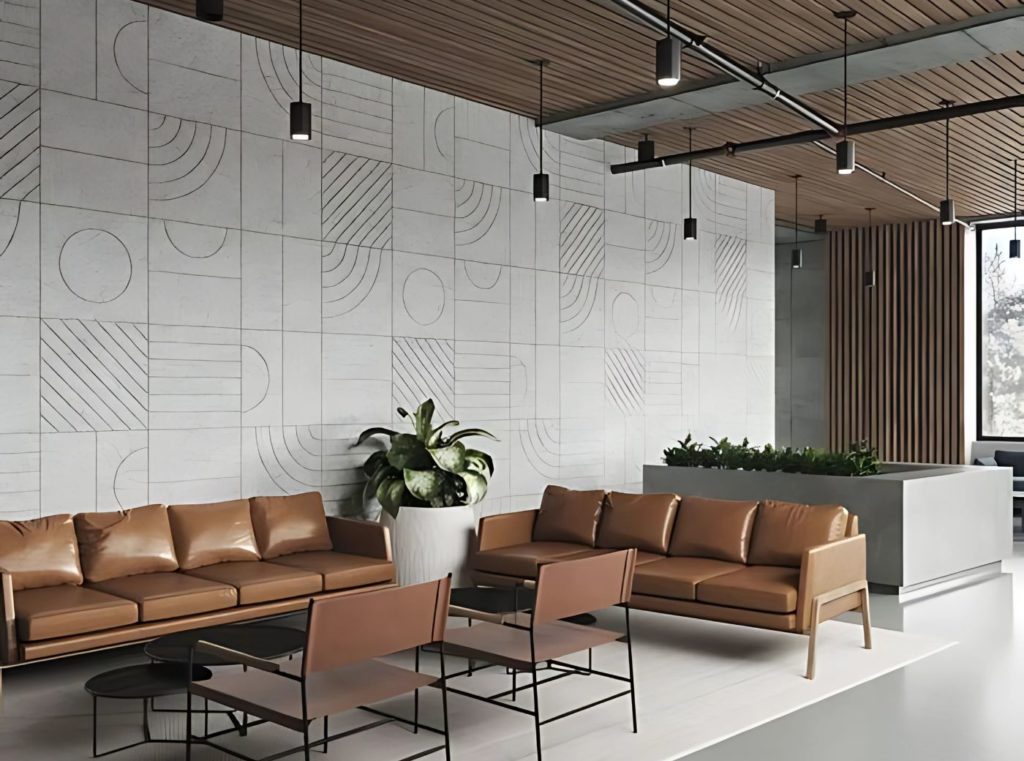Lighting in Interior Design
Frigid temperatures, darker skies, and shorter days may heighten dreariness. Lack of vitamin D may take a toll on your health too. The low light bulb exposure in your living room and lack of natural light may make you depressed and lead to seasonal affective disorder (SAD). It is common to find yourself locked in the house during wintertime (fewer sunlight moments and low temperatures).
The winter lighting in your dining room can be made effective by using LED lights or sconces to beat the dark winter. You can also use your DIY task lighting or energy-efficient bulbs for your reading nook during daylight hours as well as home décor. Utilizing interior design software can help you plan and visualize optimal lighting placements, ensuring a well-lit and cozy ambiance. Maintaining 2700-3000 kelvin bulbs for your home lighting will brighten your spaces.
Read also – 15 Best Winter Decorating Ideas and Trends for Your Home
Image Credit: covethouse.eu
16 Best Lighting For Interior Design Tips To Beat The Winter Blues
A warm, comfortable home is the best gift to receive during the season. But what is the best lighting for interiors? The right lighting—such as pendant lights, string lights for your wall, or floor lamps for your side table—will enhance your room’s ambiance by casting warm white light while adding aesthetic appeal to your living space. Maintaining a cozy home to keep the flu and colds away is, therefore, essential.
With a few tips, you can enjoy the chilly evenings as you snuggle up in your fleece comforters. Let’s find out how to keep your home warm yet stylish as you prepare for the winter blues using lighting designs, lighting fixtures, and lighting ideas for both indoor and outdoor spaces.
Read also – Best Kitchen Lighting Ideas and Trends
1. Accentuate the Bright Side
Maximize the natural light as much as possible. Your sheers will do a positive job of illuminating the light as well as maintaining your privacy. Keep the heavy curtains and shutters open till daybreak. Accentuate the lights by keeping mirrors next to your windows.
Surfaces with a sheen like mirrors, metal, tiles and glossy paint will reflect, heighten and amplify light. However, matte or textured surfaces will absorb light. You can use dark textured surfaces in overtly bright spaces to reduce the glare from much sunlight.
Read also – 6 Best Bathroom Lighting Ideas
Image Credit: onekindesign.com
2. More Light
Include floor lamps throughout the house and swap your dim lights with brighter ones. Let your house illuminate with brightness. To enhance an intimate feel, use more table lamps to create a cozy glow. Enhance the color shades to be warmer rather than cool.
You can use alabaster, pearl, parchment or ivory rather than white. The light reflected will have a mellow tone. However, you can decide to use the dimmers when going to sleep to promote better sleeping patterns.
Image Credit: Best Home Interior Design Tips To Improve Your Home Value
Image Credit: est.net.in
3. Add More Glow
Candles are known for creating an intimate feel but a little coziness will not hurt. Add a little shimmer with the candles and brighten up the dark corners. The advantage of candles is they are portable and can be moved to any part of the house.
Image Credit: pinterest.com
4. The Dining Light
Utilize high wattage bulbs on your chandeliers and scones. Include them in your overhead lights too. You can use your table or side lamps and sideboards to illuminate more light and warmth. However, if a fixture illuminates too much glare, you can reduce it by replacing it with a reflector bulb.
Read also – 20 Best Interior Design Tips To Decorate Your Home
Image Credit: pinterest.com
5. Task Masters
They are essential in places where you can easily read or work without needing a lamp like on the kitchen table or on your porch recliner during the day or during the spring season. Just as candles, desktops can be easily moved.
Image Credit: etsy.com
6. Home Makeover
Use bulbs closer to natural colors as much as possible. You can use incandescent, fluorescents or LED. Beat the blues with the blue spectrum as it can better the mental focus and alertness than other types. You can incorporate in-built systems that use LEDs and can change colors to increase the energy during the day creating warmth and coziness as you unwind at night.
Use window treatments to manipulate light. Translucent drapes tend to filter mire light and produced a diffused effect. Slated blinds provide optimum light control. The light control can vary from total transparency to full screening. It can also create dramatic patterns of light and shades when located at different angles.
Read also – 11 Best Home Decorating Ideas
Image Credit: zen.yandex.ru
7. Dimmer Switches
They increase the light effects and allow you to fine-tune the source as you maximize the other light sources. Rather than changing the bulbs, change the shades in a fixture. Translucent materials will allow more light making the rooms brighter. Add a mood-changing color to a space without paint by fixing a spotlight with a colored filter.
You can use different colors depending on the mood you want to create. Yellow may be used to reflect well-being and efficiency, blue is soothing, and calming and may induce sleep while red is dramatic, stimulating and dynamic. Green is harmonious and can be warm and earthy. Purple is calming and royal.
Read also – 8 Best Ways to Tell Your Story Through Interior Design
Image Credit: finehomebuilding.com
8. Wall-Mounted Lights
Create an illusion of longer ceilings by wall-mounting lights around the room’s surroundings. The illuminated light will create a visual elongation giving the ceilings an optical height. The lights can also be concealed behind the furniture o the floors or on the cornice. However, if you want a curved ceiling to appear lower, and enhance an intimate atmosphere, keep the lights from the ceiling.
You can place the ceiling lights fairly low using pendant fixtures with closed tops to avoid illuminating light to the ceiling. Focus attention on objects placed at a lower level such as glass wall hangings positioned on the mid-walls.
If you have a long and narrow space and you want it to seem wider, you can focus your attention on a feature at one end of the wall such as a window with an aesthetic treatment or a sculpture or a beautifully curated piece of art. You can achieve the effect by highlighting it with a spotlight as you light up the other area of the room with a less bright light.
Read also – 18 Top Home Design Trends
Image Credit: lumens.com
9. Combine Lighting with Mirrors
To create a larger illusion of your spaces, light up the opposite walls to make them seem further apart. Combine the lights with mirrors and a reflective surface to create an illusion of a larger space. You can use recessed cans facing downwards above a large wall-mounted mirror or position lamps to reflect on the mirror.
Read also – 15 Interior Decorating Mistakes That Make Your Home Look Smaller
Image Credit: pinterest.com
10. Turn Off the Ceiling Fan Lights
Ceiling fan lights provide a glare of light, especially in the middle of the room. The lights can be useful when vacuuming the room or arranging the small items in place. Then add lamps and scones to your room to add a warm glow. Comfort is not only about having enough light but having the right kind of light. It’s essential to make the rooms brighter but with the right kind of lighting.
Read also – 8 Best Interior Tips for Prefabricated Homes
Image Credit: huanghexia.top
11. Consider Minimal Decorations
Too much clutter can alleviate stress and anxiety. Decluttering your home will free up your spirits and will help you attain a functional and relaxing environment.
Image Credit: pinterest.com
12. Test your Home for Molds
Getting mold spores during winter is easy as they thrive in darkness. A simple pipe leak or a bad roof can cause water damage followed by an inhibition of molds. Having proper lighting will help counter the effect by offering the opportunity to correct the issue before it becomes a menace.
Read also – 10 Best Smart Technologies for Interior Design
Image Credit: 40eastend.ccom
13. Adjust Your Lighting
Avoid increasing the wattage on your regular bulb or sitting under lights that emit UV rays. When adding lights or converting to a stronger form of light, avoid overloading the outlets or the extension cords. Check and evaluate the natural lights to determine where artificial lights will be required.
Then consult a professional when changing your wiring or your lighting control systems. Psychologists recommend basking or using light for about 30 minutes each morning with a brightness level of 10,000 lux, or for about 1-2 hours if it has a brightness level of 2500 lux.
For comparison, 10,000 lux is on the low end of ambient daylight, whereas an overcast day is about 1000 lux. It is advisable to use minimal lighting bulbs to avoid glares and hurting one’s eyes.
You can have your breakfast, check your email, or enjoy a morning podcast while you have your light box on. Bright light therapy improves your mood by regulating your circadian rhythms and increasing serotonin. However, too much brightness in the evening might contribute to depression symptoms, too.
One study found elderly people who were depressed were more likely to have brighter environments at night. This was true even after the scientists accounted for sleep, physical activity, and other health factors that might affect depression. Don’t worry, it doesn’t mean you have to put away all of your screens after sunset.
Read also – How To Choose The Best Materials for Interior Design?
Image Credit: brusk.fr
14. Blue Light
It turns out that not all wavelengths of light affect our brains the same way. Shorter wavelengths like blue light stimulate the brain’s master circadian clock, while longer wavelengths like red and orange lights do not. That’s why our cavemen ancestors’ body clocks were not disrupted by their evening campfires.
To mimic the campfire effect, you can turn your phone or tablet screen to night mode, which is dimmer and orange. You can also wear blue-light-blocking glasses, which are spacey-looking glasses that filter out the shorter wavelengths that affect your circadian clock. Just don’t wear them during the day, because that’s when we do want bright blue lights to come through.
Read also – 15 Best Christmas Decoration Ideas for Your Home
Image Credit: pinterest.com
15. Biophilic Design
The concept of biophilic design refers to connecting nature with modern built environments. A simple but effective way of bringing natural elements to your home is with greenery. Indoor plants have many mindful benefits, such as boosting creativity, inducing relaxation, and relieving stress.
It’s believed that plants can enhance memory and concentration levels. Nurturing your plants helps you nurture yourself too distracting you from technological distractions that may be causing you anxiety like browsing on Twitter or your social media handles.
In addition, plants such as aloe Vera can absorb toxins due to their air-purifying abilities. Using natural materials such as wood for your furniture and flooring brings out an earthy feel and connects you with the environment.
Read also – 7 Top Summer Interior Design Trends to Follow
Image Credit: idei.club
16. Soft Furnishings
As well as being aesthetically pleasing, you want your home to be comforting to get you through the winter dreariness. Dress your bed with fluffy throws, snug cushions, and a thick bedspread to keep you warm at night, while making your bedroom chic. Place extra blankets and cushions on your sofa and armchairs for ultimate relaxation in every room of the house.
If you have hardwood flooring, invest in some soft rugs so you don’t have to walk across the cold hard floor. Compared to other seasons, people will be spending most of their time at home, which can make it hard to fight the winter blues. However, interior design features will help you feel more positive, creative, and calm through the bleak weather.
Read also – 20 Common Interior Design Mistakes To Avoid
Image Credit: oka.com
Conclusion
If you want to add energy and warmth to your space but are on a tight budget, you can paint to brighten the interior mood. Paint your home in fresh, warmer shades to completely transform the space. A warm tone may include pastels, beige or yellow shades. You could try dusky millennial pink or muted terracotta for a warming lift.
For interior designers and students, understanding the balance between aesthetics and functionality is essential. With Foyr’s interior design software, you can easily plan and visualize the perfect lighting setup to enhance warmth and ambiance in any space. Whether you’re an aspiring designer or a homeowner looking to refresh your interiors, Foyr provides comprehensive interior design services to bring your vision to life.
Ready to transform your space effortlessly? Try Foyr free for 14 days and design with confidence!


